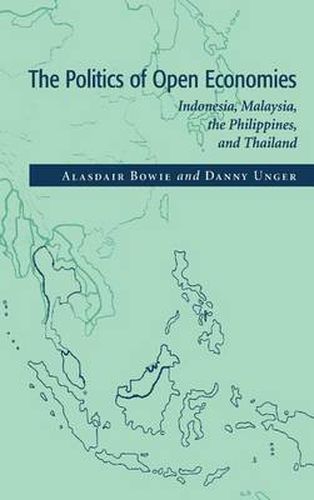Readings Newsletter
Become a Readings Member to make your shopping experience even easier.
Sign in or sign up for free!
You’re not far away from qualifying for FREE standard shipping within Australia
You’ve qualified for FREE standard shipping within Australia
The cart is loading…






This book asks why some countries have responded to the external constraints and opportunities posed by their global and regional economic context by opening up their economies. In particular, the authors examine the role domestic political and economic factors play in shaping the decision to become more open, or more inward-looking. The countries of Southeast Asia have generally enjoyed economic success in the postwar period. The authors argue that one of the explanations for this success has been their integration into the global division of labor, and analyze decisionmaker’s reasons for following this course. They place particular emphasis on external events, notably the two oil shocks of the 1970s, and the more recent outflow of investment capital and manufacturing capacity from Japan and East Asia.
$9.00 standard shipping within Australia
FREE standard shipping within Australia for orders over $100.00
Express & International shipping calculated at checkout
This book asks why some countries have responded to the external constraints and opportunities posed by their global and regional economic context by opening up their economies. In particular, the authors examine the role domestic political and economic factors play in shaping the decision to become more open, or more inward-looking. The countries of Southeast Asia have generally enjoyed economic success in the postwar period. The authors argue that one of the explanations for this success has been their integration into the global division of labor, and analyze decisionmaker’s reasons for following this course. They place particular emphasis on external events, notably the two oil shocks of the 1970s, and the more recent outflow of investment capital and manufacturing capacity from Japan and East Asia.